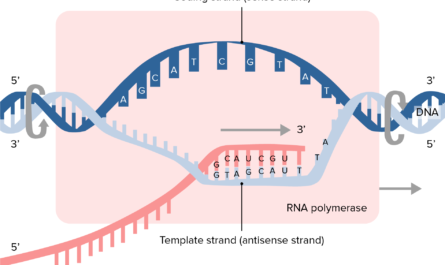Blood Based Biomarkers: A Promising Approach for Disease Diagnosis and Prognosis
Blood is one of the most easily accessible human biofluids and contains a wealth of molecular information about an individual’s health status. Researchers have been exploring blood-based biomarkers for disease detection and monitoring treatment responses. Significant progress has been made in utilizing blood biomarkers for various cancers, neurological disorders, cardiovascular diseases and infectious diseases. This article discusses the current state and future potential of blood-based biomarkers.
Cancer Biomarkers in Blood
Cancer biomarkers help in early detection, diagnostic confirmation, assessing treatment response and monitoring disease recurrence. Circulating tumor cells (CTCs), cell-free DNA (cfDNA), exosomal DNA and RNA as well as protein biomarkers in blood show promise for non-invasive cancer management. Studies have demonstrated the clinical utility of CTC counts and mutational profiles from cfDNA for guiding therapy decisions in metastatic cancers like breast and prostate cancer. Recent single-cell analysis of CTCs has allowed comprehensive molecular characterization of these rare cells for understanding metastasis and treatment resistance. Large consortium efforts are identifying robust blood-based biomarker signatures for early detection of cancers.
Neurological Biomarkers
Neurological disorders pose diagnostic challenges due to the inaccessibility of brain tissue for analysis. Blood biomarkers provide an appealing option for non-invasive monitoring of brain pathologies. Researchers are investigating blood proteins, metabolites and circulating nucleic acids as potential biomarkers for Alzheimer’s disease, Parkinson’s disease, traumatic brain injury and stroke. Promising results have been seen for plasma amyloid beta and tau proteins as biomarkers for diagnosis and monitoring of Alzheimer’s disease. Other candidates like neurofilament light chain and glial fibrillary acidic protein show potential as biomarkers for axonal injury and astrocyte activation in various neurodegenerative and neuropsychiatric conditions.
Cardiovascular Disease Biomarkers
Cardiovascular diseases remain a leading cause of deaths globally. Blood biomarkers play a crucial role in diagnosis, risk assessment, guiding therapy and monitoring treatment response in conditions like myocardial infarction, heart failure and atherosclerosis. Troponins, myoglobin, BNP/NT-proBNP and hsCRP are widely used protein biomarkers for detection and prognosis assessment of acute coronary syndromes. Emerging biomarker approaches like metabolomics, lipidomics and proteomics aim to identify novel biomarker signatures with higher diagnostic and predictive power for various cardiovascular pathologies. Multi-analyte biomarker panels show promise over single markers for achieving improved accuracy.
Infectious Disease Biomarkers
Timely diagnosis and monitoring of treatment response is critical for effective management of infectious diseases. Circulating biomarkers facilitate non-invasive assessment in conditions where access to infected tissues is limited. C-reactive protein, procalcitonin, cytokines and interferons provide useful information as inflammation and immune response biomarkers. Nucleic acid and antigen detection in blood plays a major role in diagnosis of bacterial, viral and parasitic infections. Advances in metagenomics enable comprehensive pathogen identification from blood samples. Researchers are also exploring host response biomarkers like metabolite signatures for diagnosis and monitoring viral infections like influenza, sepsis, tuberculosis and HIV/AIDS.
Standardization and Translatability
Widespread clinical adoption of blood biomarkers requires confirmation of analytical and clinical validity in large independent studies. Pre-analytical and analytical factors need standardization for assay reproducibility across different populations and healthcare settings. Multi-center standardized studies and consensus biomarker qualification criteria will help accelerate translation. Rigorous analytical validation, establishment of reference ranges and clinical utility assessments are necessary. Digital health technologies provide opportunities for longitudinal remote patient monitoring using blood biomarkers. Standardization of biomarker measurement, data collection and reporting protocols will enable clinical decision support and precision medicine applications.
Blood-based biomarkers hold immense potential for disease diagnosis, risk stratification, monitoring treatment responses and enabling early interventions. Significant progress has been achieved in biomarker discovery for several disease conditions. Standardization of pre-analytical and analytical protocols along with demonstration of clinical validity and utility in large well-designed studies are essential next steps. Technical advancements in biosensing, machine learning and integrated digital platforms will help realize the full potential of liquid biopsy approach using blood biomarkers for advancing precision medicine.
The article aimed to provide a comprehensive overview of the current state and future directions of blood-based biomarker research. Significant progress has been made in utilizing circulating biomarkers from blood for diagnosis and monitoring of various cancers, neurological disorders, cardiovascular diseases and infectious diseases. Further large-scale validation studies and standardization of protocols are needed to translate promising research findings into clinical practice. Integrating biomarkers with digital health technologies promises to revolutionize disease management through remote longitudinal monitoring. With continued research and technology advancements, blood biomarkers hold significant promise to transform healthcare through non-invasive liquid biopsy approaches.
Note:
1. Source: Coherent Market Insights, Public sources, Desk research
2. We have leveraged AI tools to mine information and compile it




